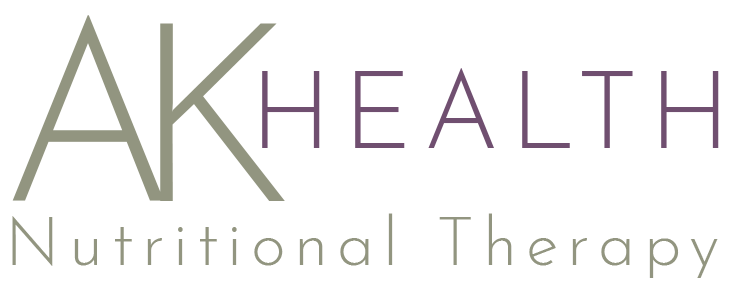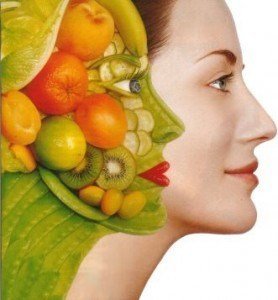DISCOVER THE SECRETS OF GORGEOUS SKIN
In an age where everything seems to be about looking good, not feeling confident about the skin you’re in (on every level) can have a really negative impact on how you experience your life. It IS possible to have an enormous impact on the way your skin looks and feels by making some changes to the way you eat – and I don’t mean overly restricting the foods you love or going on a juice cleanse.
There is no miracle potion you can buy to put on your skin that can achieve what a good diet can. Of course, there are products that can shift the dead skin cells, which lets the world see your beauty. But if your body isn’t happy, your skin will be sending messages to the world that that’s the case.
Whether it’s hormonal acne (time-of-the-month spots or that hideous peri-menopause thought-I-was-past-all- of-that acne) or inflamed skin, like eczema or psoriasis, I want you to know that the answer lies in the supermarket and health food store rather than the pharmacy or beauty department. In this article, I’d like to highlight some of the common causes of conditions I see in clinic and some typical solutions. A personalised consultation is an ideal way to get the results you are looking for – especially if you’ve been struggling for a while. If you know you need a real breakthrough in this area, we should definitely talk. I warmly invite you to get in touch – email, message or social media. Visit my website www.akheatlh.co.uk.
ACNE
Acne is a very common problem you tend to think of as only affecting children going through puberty. For many people, the condition does resolve itself by the time they get to their 20s, while for others, it simply doesn’t. And many women are alarmed by a return of hormonal acne in their 40s.
The main symptoms of acne are greasy skin and spots that might range from whiteheads to painful red papules and pustules filled with puss.
There are four main causes: increased turnover of skin cells, excess sebum production (one big trigger is hormone imbalance), bacteria or an inflammatory response, which, as research suggests has its origin in our gut. to read: The main causes are: increased turnover of skin cells, excess sebum production (often triggered by hormone imbalance), bacteria and an inflammatory response. Research suggests that these causes may be directly linked to our gut health.
Though protocols vary, they might include looking at how well your body detoxifies toxins and hormones, your need for rebalancing hormones, your digestive health or addressing any dietary triggers such as grains or dairy or nutrient imbalances
ROSACEA
This is a condition that appears as red patches on the nose, cheeks, chin or forehead. It looks a bit like acne and can be very painful. The condition can come and go in the early stages, but if not dealt with, it can result in more permanent and visible blood vessel damage.
The causes appear to be multifactorial. There are links to increased blood flow to the skin (you’re more likely to have rosacea if you’re fair-skinned and blush easily), more inflammatory proteins in the skin, high levels of free radicals and an imbalanced digestive system.
Common nutritional approaches might include tackling those things that make you flush more. This could be reducing environmental triggers, identifying food intolerances (foods high in histamine can be a problem), balancing the digestive system and lifestyle strategies to manage stress.
PSORIASIS
Psoriasis is a skin condition where skin cells turn over much more quickly than normal. This leads to an accumulation of skin cells on the surface of the skin; a psoriatic plaque that appears as raised patches covered with silvery scales. It can look quite angry and red due to an increase in blood vessels needed to support the rise in the number and production of cells.
Scientists used to think psoriasis was simply a skin condition, but now we know that its roots lie in the immune system. as such psoriasis is now classified as an autoimmune condition and is often seen alongside digestive issues and increased intestinal permeability (aka “leaky gut”) which causes undigested food particles and bacteria to pass through the gut lining into the blood stream thus potentially causing systemic inflammation.
Autoimmune conditions can be quite complex to unravel. A gut healing protocol is essential and it may include eating gluten-free, avoiding vegetables from the nightshade family, like potatoes, tomatoes, aubergines, peppers, and chillies and eating plenty of anti-inflammatory omega-3 foods like oily fish, flax and chia seeds.
ECZEMA
Healthy skin is moisturised by fats and oils and plumped up with adequate water levels. In eczema sufferers, the skin fails to produce the necessary amounts of fats and oils, and it is less able to retain water. As a result, the body’s protective layer isn’t as robust as it could be. You might notice itchy patches on the hands, elbows, and in the “bending” areas of the body, such as the inside of the elbows and back of the knees or the neck. But eczema can appear anywhere, including the armpits, chest and eyelids.
Eczema is often a sign of a ‘leaky gut’, a condition where undigested foods and bacteria end up passing through the gut lining into the bloodstream. These toxic substances can result in inflammation. A gut healing protocol is recommended by starting to remove triggers that make inflammation worse – such as gluten, sugar and dairy – from your diet.
HELPFUL NUTRIENTS FOR SKIN HEALTH
PROBIOTICS
Probiotics, especially bifidobacteria have been shown to be beneficial to skin health via the gut-skin-axis. Gut microbes produce short-chain-fatty acids, which can help modulate gut integrity, immune function and inflammatory response. While research regarding specific probiotic strains for skin disorders is still in its infancy, studies have shown promising results in resolving certain skin conditions with probiotic supplements and eating pre-biotic foods such as dark chocolate, pulses, under-ripe bananas, spinach, onions, oats, wild blueberries and apples.
VITAMIN A
Vitamin A helps control the rate of keratin our skin produces, aka the shedding of skin. Vital for skin maintenance and repair, a lack of vitamin A can result in a dull, flaky complexion. Foods to include: liver, eggs, sweet potato, carrots, butternut squash, spinach, kale, spring greens, turnip greens, romaine lettuce.
VITAMIN B
B vitamins are important for cell reproduction, and they are very important as skin – along with hair and nails – is constantly being renewed. If you’re deficient, you might experience dry, grey-looking skin, acne, wrinkles and hair loss. There are a number of different B vitamins, and each contributes something slightly different when it comes to skin health. Sources of B vitamins include meat and poultry, fish, beef, kidneys and liver, eggs, dairy, sunflower seeds, dried beans, peas, lentils, sesame seeds, asparagus, artichokes, avocados, broccoli, Brussels sprouts, kelp, mushrooms, nuts, peas, spinach, sweet potatoes, watercress, Marmite.
VITAMIN C
Vitamin C is key for collagen production without which skin can sag and look dull. Foods to include: blackcurrants, red peppers, kale, collard leaves, broccoli, kiwis, oranges, courgettes, cauliflower, spinach and citrus fruit.
CALCIUM
Dry, itchy skin? This could be due to calcium shortage, especially if this is accompanied by premature wrinkles. Calcium contributes to a number of processes in the body, including how quickly skin cells divide or regulating lipids (fats) in the skin that maintain its integrity. Find calcium in foods like milk, cheese and other dairy products, fish where you eat the bones, sardines and pilchards, soya beans, tofu, sesame seeds and tahini, green leafy vegetables like broccoli, cabbage and okra.
VITAMIN D
Skin cells produce a chemical that is converted into vitamin D in sunlight. It’s important for many functions in the body, including immunity, blood sugar balance and bone health. Vitamin D also regulates growth and maturation of skin cells. It’s difficult to get enough vitamin D from food alone, but do try to include more sardines, salmon, tuna, swordfish, eggs, orange juice, and fortified margarine, fortified cereals. And don’t forget a daily dose of getting out into the sun! It’s your best supplier of the ‘sunshine vitamin’.
VITAMIN E
Like vitamins A and C, vitamin E helps limit the damage done to collagen and elastin fibres by free radicals – the very things that accelerate skin ageing. Foods to include: sunflower seeds, almonds, spinach, Swiss chard, papaya, mustard greens, asparagus, peppers, Brazil nuts, avocado, fresh tuna, some meats including pork, beef, turkey and chicken, cottage cheese, eggs, brown rice, sunflower seeds, spinach, oats, mushrooms.
COPPER
Copper works with both vitamin C and zinc on creating the support structure for the skin. The balance of zinc and copper in the body is especially important as high levels in one can decrease absorption of the other. Good sources of copper are organ meats like liver, oysters, shitake mushrooms, nuts and seeds, leafy greens and dark chocolate.
SELENIUM
Selenium is a potent antioxidant that helps protect against free radical damage and is considered to play a role in skin cancer prevention. It additionally helps eliminate toxins from the skin. Brazil nuts are one of the best sources but also choose tuna, pork, beef, turkey and chicken.
ZINC
Zinc has a well-researched role in wound healing. People who suffer from eczema, acne or rosacea are often low in zinc. A lack of zinc can result in poor skin healing, eczema and rashes. Foods to include: venison, fish, ginger root, lamb, lean beef, turkey, green vegetables, oats, nuts, sesame seeds, pumpkin seeds, yoghurt, scallops.
OMEGA-3
Essential fats are the building blocks of healthy cell membranes. Omega-3 is especially important and has a very calming effect on the body, which is important for inflammatory conditions. A lack of essential fats causes cells to dry out too quickly, resulting in dry skin. The body can’t make these fats, you have to eat them. Choose oily fish (salmon, sardines, halibut, scallops), flaxseed, walnuts, soya beans, tofu.
REFERENCES
Roudsari MR, Karimi R, Sohrabvandi S, Mortazavian AM. Health effects of probiotics on the skin. Crit Rev Food Sci Nutr. 2015;55(9):1219-40. doi: 10.1080/10408398.2012.680078. PMID: 24364369.
Rembe JD, Fromm-Dornieden C, Stuermer EK. Effects of Vitamin B Complex and Vitamin C on Human Skin Cells: Is the Perceived Effect Measurable? Adv Skin Wound Care. 2018 May;31(5):225-233. doi: 10.1097/01.ASW.0000531351.85866.d9. PMID: 29672394.
Balić A, Vlašić D, Žužul K, Marinović B, Bukvić Mokos Z. Omega-3 Versus Omega-6 Polyunsaturated Fatty Acids in the Prevention and Treatment of Inflammatory Skin Diseases. Int J Mol Sci. 2020 Jan 23;21(3):741. doi: 10.3390/ijms21030741. PMID: 31979308; PMCID: PMC7037798.
Gray NA, Dhana A, Stein DJ, Khumalo NP. Zinc and atopic dermatitis: a systematic review and meta-analysis. J Eur Acad Dermatol Venereol. 2019 Jun;33(6):1042-1050. doi: 10.1111/jdv.15524. Epub 2019 Mar 15. PMID: 30801794.
Schäfer T. Complementary and alternative medicine (CAM) and atopic eczema. Allergol Select. 2017 Aug 4;1(1):44-52. doi: 10.5414/ALX01287E. PMID: 30402601; PMCID: PMC6039990.]
Vasily DB. Topical Treatment With Liposomal Sodium Copper Chlorophyllin Complex in Subjects With Facial Redness and Erythematotelangiectatic Rosacea: Case Studies. J Drugs Dermatol. 2015 Oct;14(10):1157-9. PMID: 26461829.


